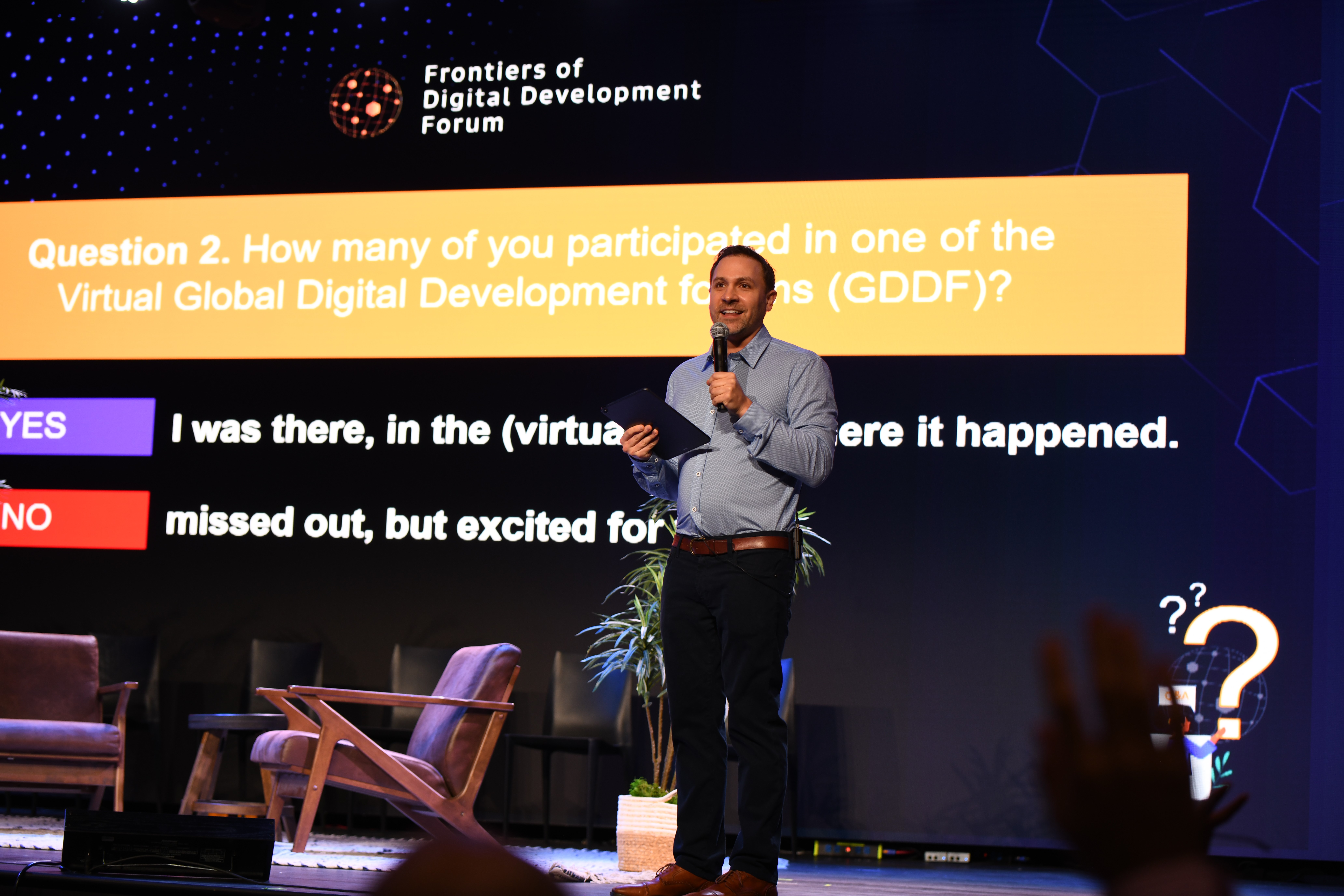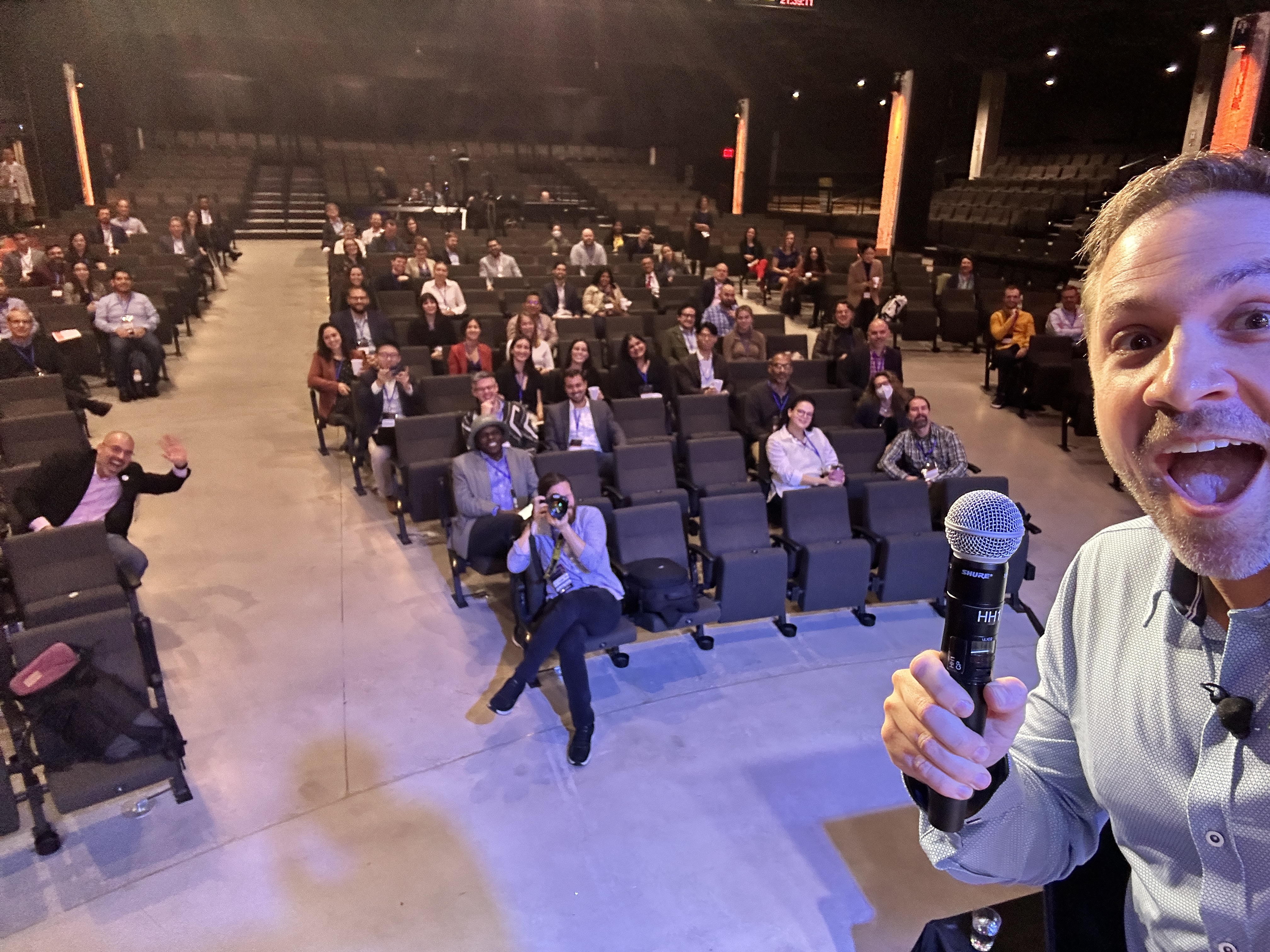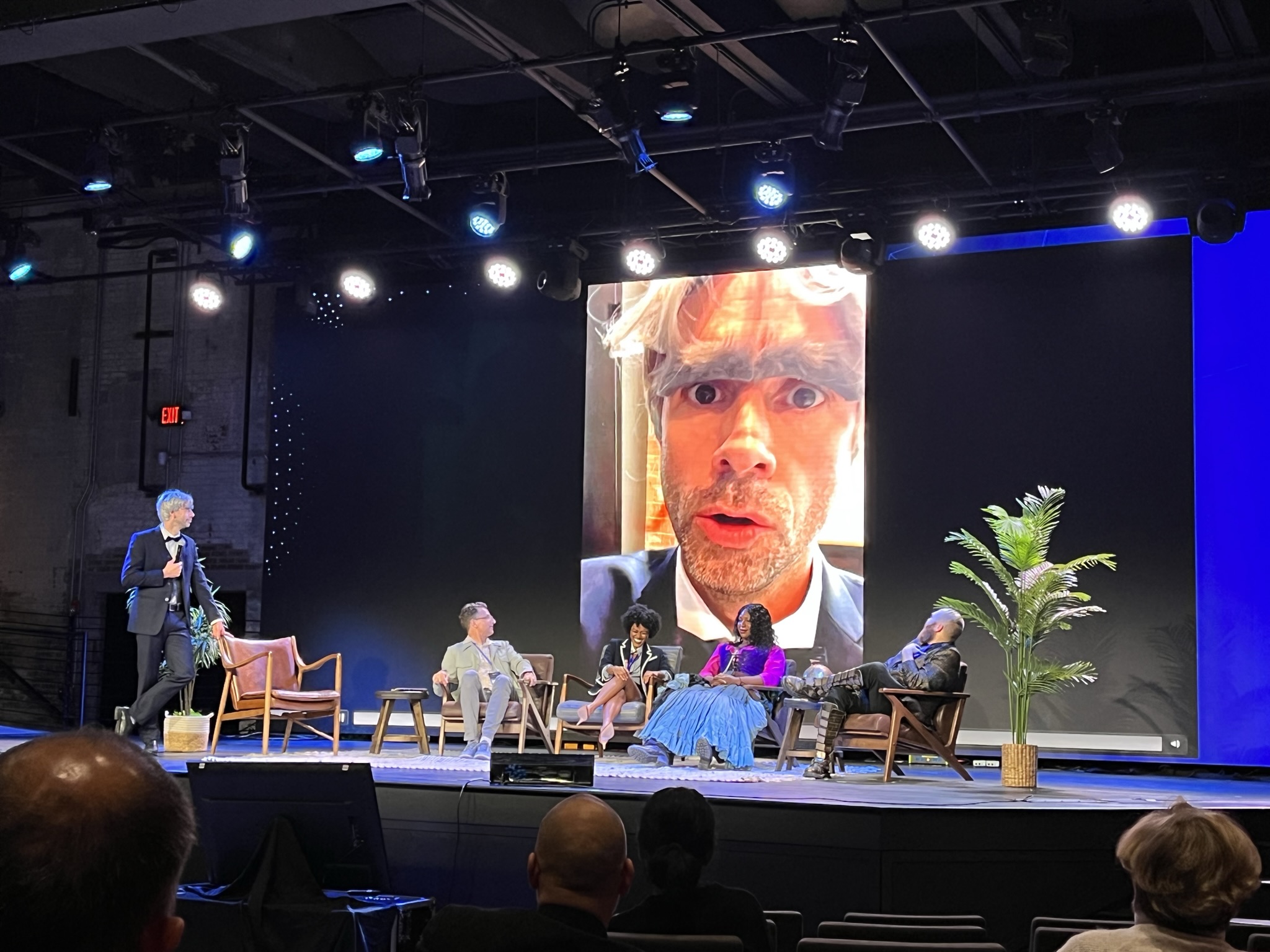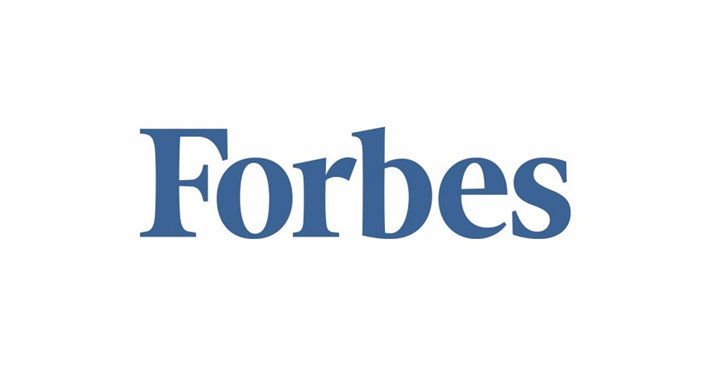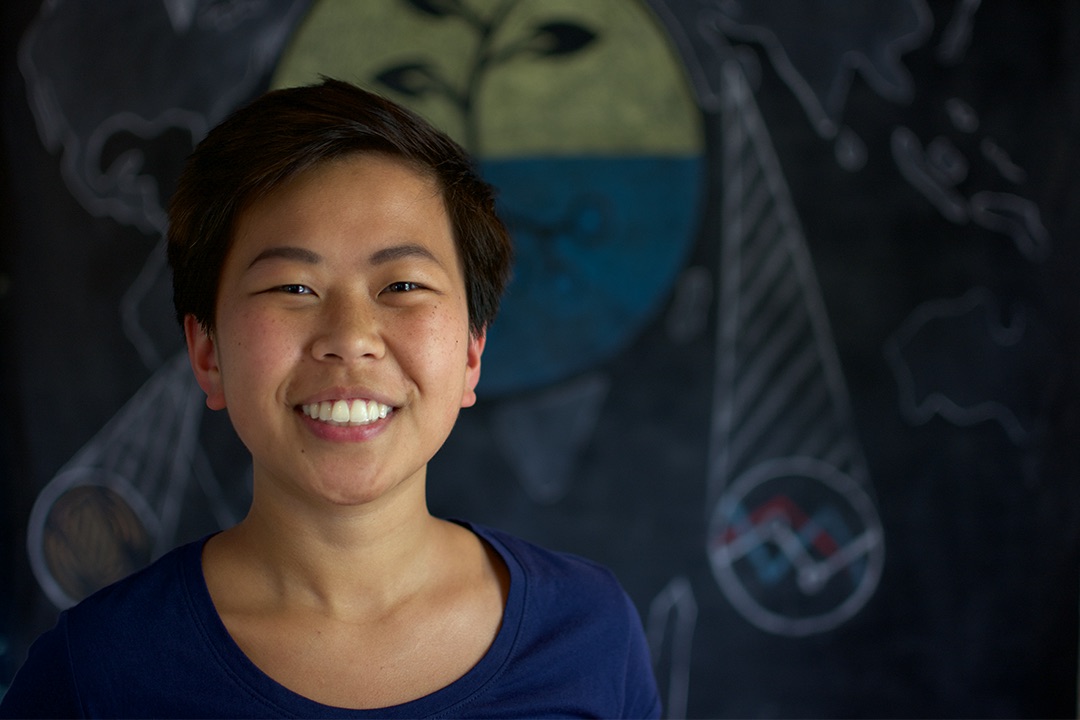By: Nick Martin, CEO
As TechChange’s CEO and someone who finds great joy in bringing people together to discuss topics that matter, I love pushing the envelope on how we convene. On reimagining what a conference or event can be, and what it can mean for the people who participate.
And after nearly three years of the COVID-19 pandemic and the distance that it necessitated, people are hungry for connection. The kind that gets brain cells stimulated, but also the kind that you can feel in your bones. We believe TechChange’s hybrid event model brings together the best of virtual technology and in-person experiences for a new kind of convening that is accessible, inclusive, and downright fun.
With some help from our founding sponsors USAID, Chemonics, and the Digital Impact Alliance (DIAL), exactly one month ago, we put our hybrid model to convene the first-ever Frontiers of Digital Development Forum to explore the role of frontier technologies in international development. This two-day conference took place online and in Washington D.C., with nearly all in-person elements available to virtual participants and even more virtual-only content and networking opportunities. More than 600 people joined us from 55 countries– because conversations that impact the whole world shouldn’t just take place in D.C.
What went well
1. Virtual participants felt “centered.” There is such a temptation with hybrid events to focus on the in-person experience. The food, the drinks, the lighting, the seating charts… it can be all-consuming. But we tried hard – super hard – to focus our attention equally on the in-person AND the virtual experience. We wanted to create a hybrid conference that made our virtual participants in Kenya, Jordan, Nigeria, Ghana, Pakistan, Argentina, and everywhere else feel like they matter just as much as those who could be in-person with us in DC. And I’m happy to report that FDDF participants online resoundingly felt exactly what we intended for them: that the virtual experience far exceeded their expectations. In fact, 84% of participants who joined virtually reported FDDF improved their opinion of hybrid events.
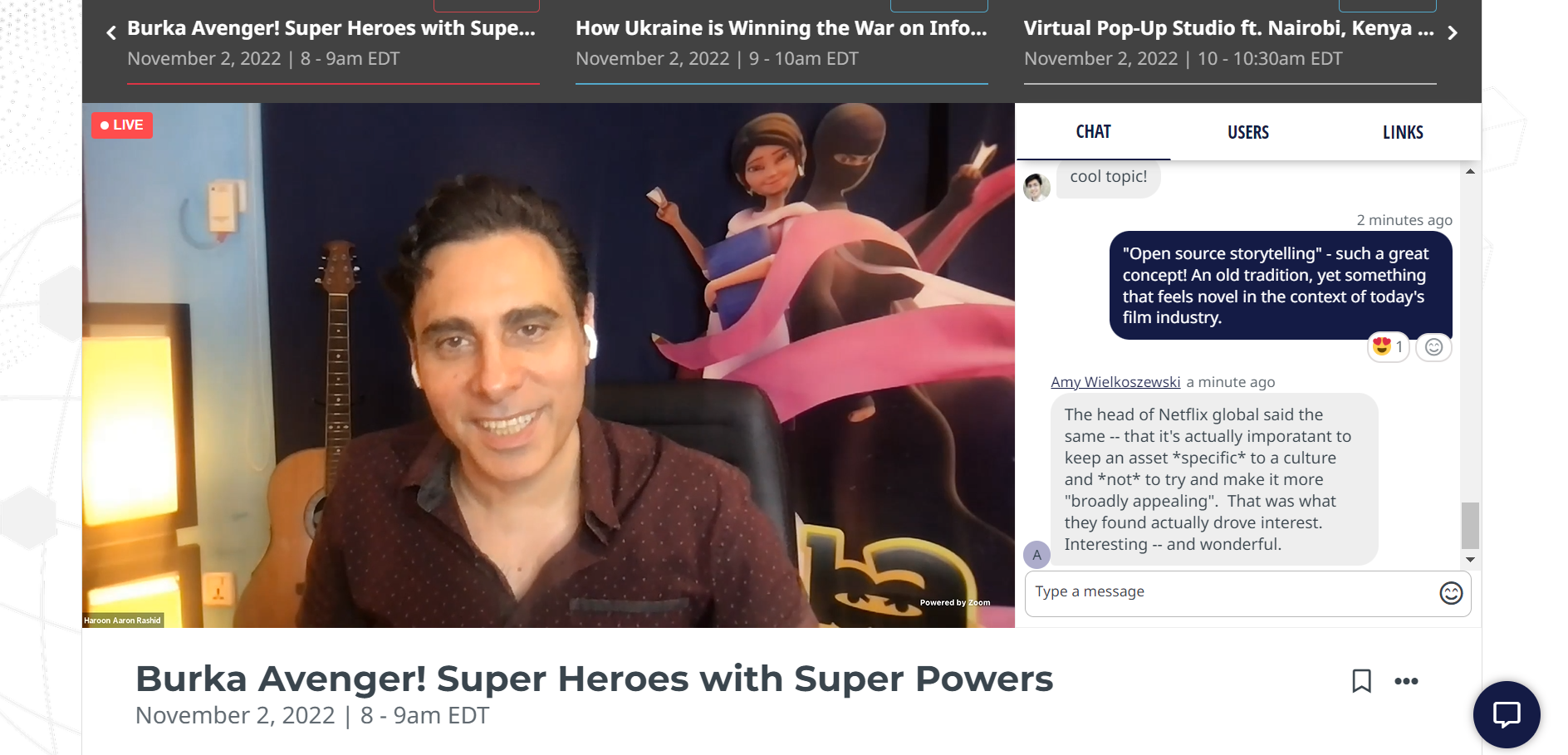
2. Diversity of content types: For a nuanced topic like this, we knew that we needed to look at the subject matter from different angles. For FDDF, we had 25+ engaging and robust conversations, tech demos, breakout sessions, and networking activities that dug into aspirational, frontier technologies and their practical utility for large-scale humanitarian and development objectives.
3. Surprising session formats: For Day one’s kick-off, we tried a new session format, “The Long Conversation.” This unique Smithsonian-inspired approach staged timed two-person dialogues on frontier tech skepticism, aspiration and progress with luminaries from USAID, Google, and more from diverse backgrounds and perspectives. No moderator, no speeches, and no slides. Just interesting conversations on stage between two people at a time. You can watch it on YouTube or listen on Soundcloud to check it out.
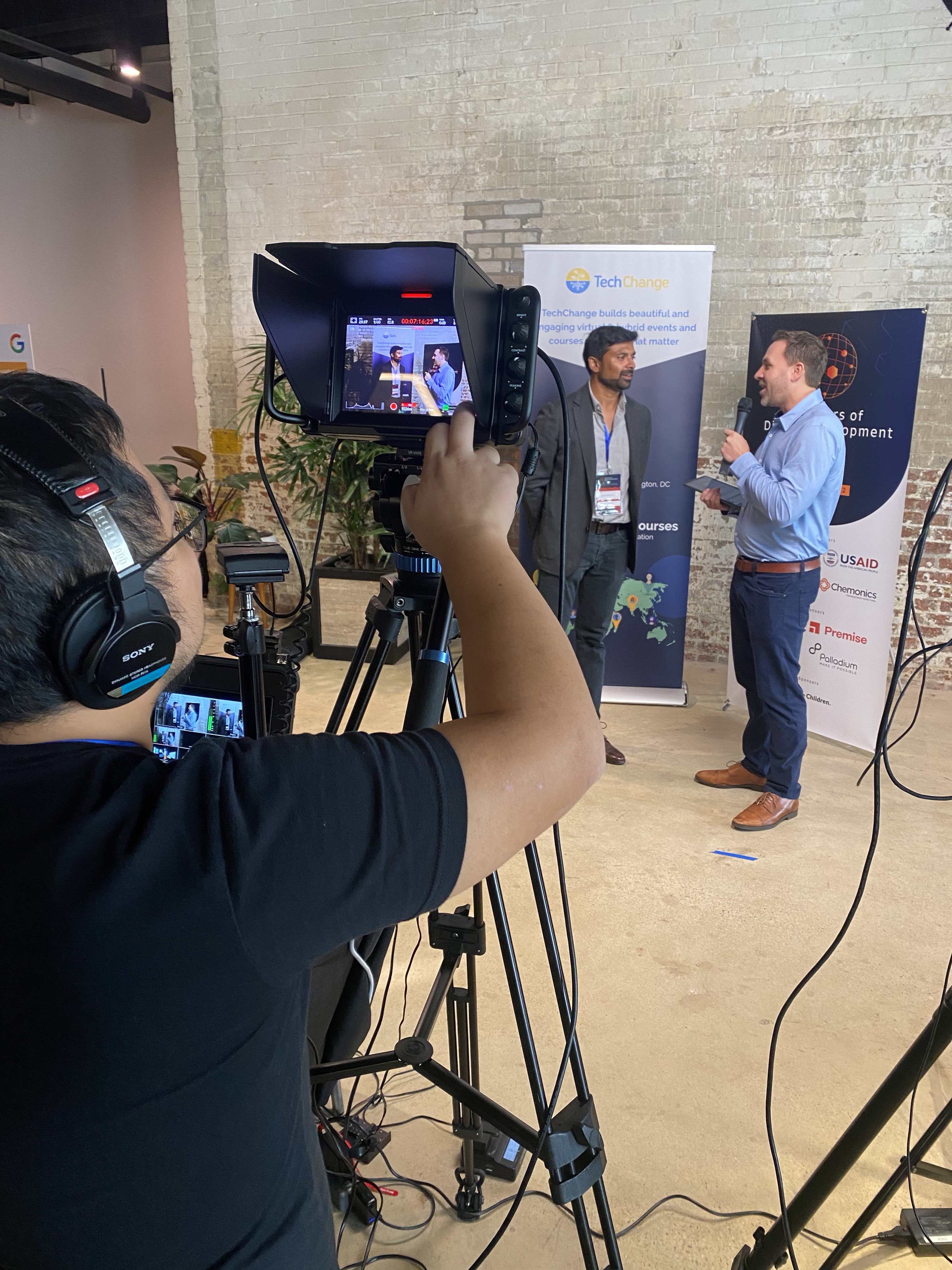
4. The Pop-Up Studio: One of the goals of hybrid is to break down the barriers between in-person and online participants. One of the ways we do this that allows online participants to dig into the energy of the conference is the Pop-Up studio. I’m biased, but this was easily my favorite part of FDDF22. I got to interview speakers fresh off the stage for their impressions and hot-takes, and talk with conference goers about what they’re thinking about all the material. Our on-site production team streams these interviews out to virtual participants like TV news. This allows people at home on their computers to get a back-stage view of the conference, and get a taste of the energy of the day.
What didn’t go so well…
No event is perfect. We had an honest conversation with our organizing committee about what went well and what we’d improve next time. Here are a few:
1. Timeline: I gave the team a deadline that was nearly impossible– under three months to envision, build, and execute a brand-new hybrid event from scratch. And yet they rose to the occasion to meet it. I’m still amazed they pulled it off – and didn’t even once try to kill me in the process!
2. Lack of a content czar: Next time, we’ll build in a longer lead time, and have a content Czar whose job it is to oversee the overall narrative of the conference and make sure all of the dynamic pieces fit together holistically. This is also something some of the partners we support may also want to consider.
3. Improv comedy is great, but not without some serious preparation: We tried something wild, y’all: we invited comedians to be part of our event. And not to just do some stand-up entertainment at the opening and closing plenary. We wanted them to sprinkle it in throughout the event. Does that sound nuts? Maybe it was, a little?! While we heard positive feedback on the comedians’ prepared sets, we gave them the pretty impossible task of doing improv – on camera – throughout the entire day. But we’re excited to keep exploring ways to make global development content more innovative, accessible and entertaining with more creative partnerships like this.
4. Not quite enough on-stage controversy: FDDF was meant to explore the boundaries of frontier technology within digital development, not shying away from tough conversations. And we did that – through sessions on the information war in Ukraine, the pros (and cons) of partnering with tech firms, and a feminist, Global South critique on AI. The topics were hard-hitting, but we think we can do more to set the stage for difficult and important conversations in the future. We’ll be exploring the role of anonymous inputs, and crowd-generated content, in order to further engage new voices in each conversation.
At TechChange, we don’t just put on hybrid events for our partners, and sit back and watch. We are actively involved in putting on our own events, where we have skin in the game and a major role in planning and organizing. These events are our own R&D labs. They help us test out the technology we’re offering to partners, and always keep an eye on opportunities for improvement. Not only that, it keeps us empathetic to the stressors and joys of conference planning. When we say we’ll be the partner that does more for your hybrid event, we mean it. We’ve been there, and we want to put our lessons learned to work for you. From recommending ways to keep global participants engaged from afar to project management suggestions around timeline, our team can help you shorten the learning curve to engaging, inclusive, and fun hybrid events. We love this stuff!

